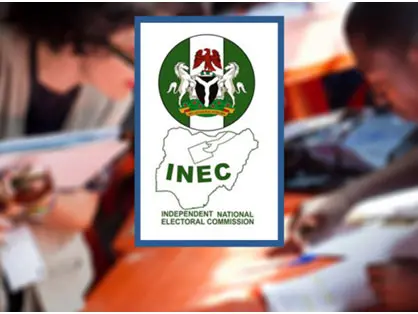‘How some INEC staff attempted to compromise election results’
The Independent National Electoral Commission (INEC) will defend all its actions during the recent general elections by the time the election petition tribunals commence sitting, sources at the electoral empire have said. There have been widespread misgivings about the outcomes of the elections, as many aggrieved parties have vowed to challenge the outcomes in court. […]

The Independent National Electoral Commission (INEC) will defend all its actions during the recent general elections by the time the election petition tribunals commence sitting, sources at the electoral empire have said.
There have been widespread misgivings about the outcomes of the elections, as many aggrieved parties have vowed to challenge the outcomes in court.
Specifically, presidential candidates of the Peoples Democratic Party (PDP) and the Labour Party (LP), Atiku Abubakar and Peter Obi, respectively have filed cases at the Presidential Election Petition Tribunal challenging the declaration of the All Progressives Congress (APCs) candidate, Bola Tinubu, as winner.
While Atiku came second, Obi came third, but both of them are claiming victory in the poll, saying they were rigged out partly by INEC which failed to upload the results of the election live via its Result Viewing Portal (IReV).
- NIGERIA DAILY: The True Identity Of Arrested Eze Ndi Igbo
- Lagos PDP elders tackle Jandor over attack on Bode George
The INEC sources who disclosed that the commission was ready to defend itself at the tribunals and in any other court, said there was no ambiguity in the results declared so far which returned Tinubu as president-elect.
They said this was the best election conducted in Nigeria because the process denied powerful forces to rig.
Daily Trust reports there was confusion following the inability of INEC to upload the presidential results in real time, with some people alluding that the server collapsed while others said it was hacked.
“INEC is constrained to give an official position on the issue to the public because the case is in court, but there is nothing to hide,” one of the sources with knowledge of happenings at the commission said.
“Of course, there were issues while uploading results to IReV not long after the commencement of the polls on February 25, precisely in relation to the presidential results.
“INEC had used IReV for off-season governorship and assembly elections (both national and state) and therefore its efficacy for such kinds of elections were confirmed.
“However, the IReV was not test-run; there was no mock election for the presidential election until D-Day. And when glitches started, the commission deployed its alternative method; hence the election was not suspended despite outcry from some persons. The IReV infrastructure is domiciled abroad. It was not compromised.
“No single data is missing. The Bimodal Voter Accreditation System (BVAS) worked perfectly,” the source explained.
He added that sadly some staff within the commission attempted to take advantage of the emergency situation and contacted their political friends with a view to compromising the whole process.
“But they could not succeed in altering the election outcomes as evident in the substantial compliance you see with the results declared by INEC and those from multiple international and local election monitors that deployed their staff to the field.
“The technology has saved the day and INEC will prove this in court. INEC’s IT experts and lawyers are set for anything that might come up. On the other hand, in-house saboteurs are being handled,” he further said.
